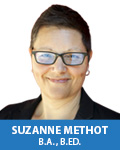Description
LIVE STREAM: May 12 – 14, 2025 from 8:30am – 4:00pm (Saskatoon, SK) Please adjust your start time according to your specific time zone.
ON-DEMAND: Recorded footage & course content (certificate, videos, quiz) will be available until June 2, 2025. Please allow 3 – 10 business days for footage to be processed. Extensions cannot be granted under any circumstances.
Registration will close May 11, 2025.
Wednesday, May 14, 2025 | Day Three

De-Colonizing Services & Programs in Education & Mental Health: Holistic & Strength-Based Approaches to Better Serve Indigenous and Non-Indigenous Children & Youth
This workshop will explore the power of narrative-based approaches in addressing mind, body, spirit and emotion to empower children and youth to make meaning of their experiences, transform their self-concept, and rebuild relationships with others and the world around them. Participants will learn how to use storytelling and other motivational techniques to guide healing and growth. We will also explore ways to decolonize your work in classrooms, counseling, social work, or any interactions with children and youth by adopting holistic, strengths-based methods, and discuss ethical considerations for working in cross-cultural and community contexts.
Special attention will be given to the intersections of complex PTSD, developmental trauma, and colonialism, including the impact of intergenerational trauma on memory and well-being. Indigenous frameworks for understanding health, wellness, and healing will also be integrated into the conversation.
By the end of the session, participants will leave with practical tools, frameworks, and methodologies for addressing intergenerational trauma and complex PTSD, and for providing healing-informed support to individuals, families, and communities.
Education and Clinical Professionals: K–12 Classroom Teachers, School Counsellors/Psychologists, Learning Assistance/ Resource Teachers, School Administrators, School Paraprofessionals including Special Education Assistants, Classroom Assistants and Childcare Workers. All other professionals who support students including but not limited to: Nurses, Social Workers, Psychologists, Clinical Counsellors, Family Therapists, Occupational Therapists, Speech Language Pathologists, Addiction Counsellors, Youth Workers, Mental Health Workers, Probation Officers, and Early Childhood Educators.
Suzanne Methot has 30 years of experience creating and applying culture-based and trauma-informed service frameworks. She was a classroom teacher in the Toronto District School Board, where she created a trauma-informed, arts-based classroom program that fostered identity, engagement, and student achievement for Indigenous students experiencing intergenerational trauma, and also worked for the TDSB’s Aboriginal Education Centre, where she planned and facilitated teacher professional development sessions. Suzanne has also worked in advocacy and direct-service positions at organizations including the Native Women’s Resource Centre of Toronto, the Anishinabek Nation (Health and Environment Program), the YWCA Elm Centre (Winona’s Place), and West Neighbourhood House (the Meeting Place). Born in Vancouver in 1968 and raised in Sagitawa (Peace River, Alberta), Suzanne is Asiniwachi Nehiyaw (Rocky Mountain Cree) of mixed Indigenous and European heritage. She is the author of the YA book Killing the Wittigo: Indigenous Culture-Based Approaches to Waking Up, Taking Action, and Doing the Work of Healing (ECW Press), the award-winning non-fiction book Legacy: Trauma, Story, and Indigenous Healing (ECW Press), and co-author of the Grade 11 textbook Aboriginal Beliefs, Values and Aspirations (Pearson/Goodminds). Suzanne regularly presents at gatherings, conferences, and staff professional development sessions across Canada and the United States, and is honoured to contribute to the work of mental health professionals, health-care practitioners, educators, addictions counsellors, community workers, and those working in the criminal justice system. https://www.suzannemethot.ca/
| Registration | Early bird Fee | Regular Fee |
|---|
| Individual 1 Day Enrollment | $244.00 | N/A |
| Individual 2 Day Enrollment | $484.00 | N/A |
| Individual 3 Day Enrollment | $664.00 | N/A |
All fees are in Canadian dollars ($CAD) and per person.
Group rates and student discounts are available. Please contact webinars@jackhirose.com for more information.
Fees are per person, seat sharing is not allowed. Please respect this policy, failure to comply will result in termination of access without a refund. For group rates please contact webinars@jackhirose.com






